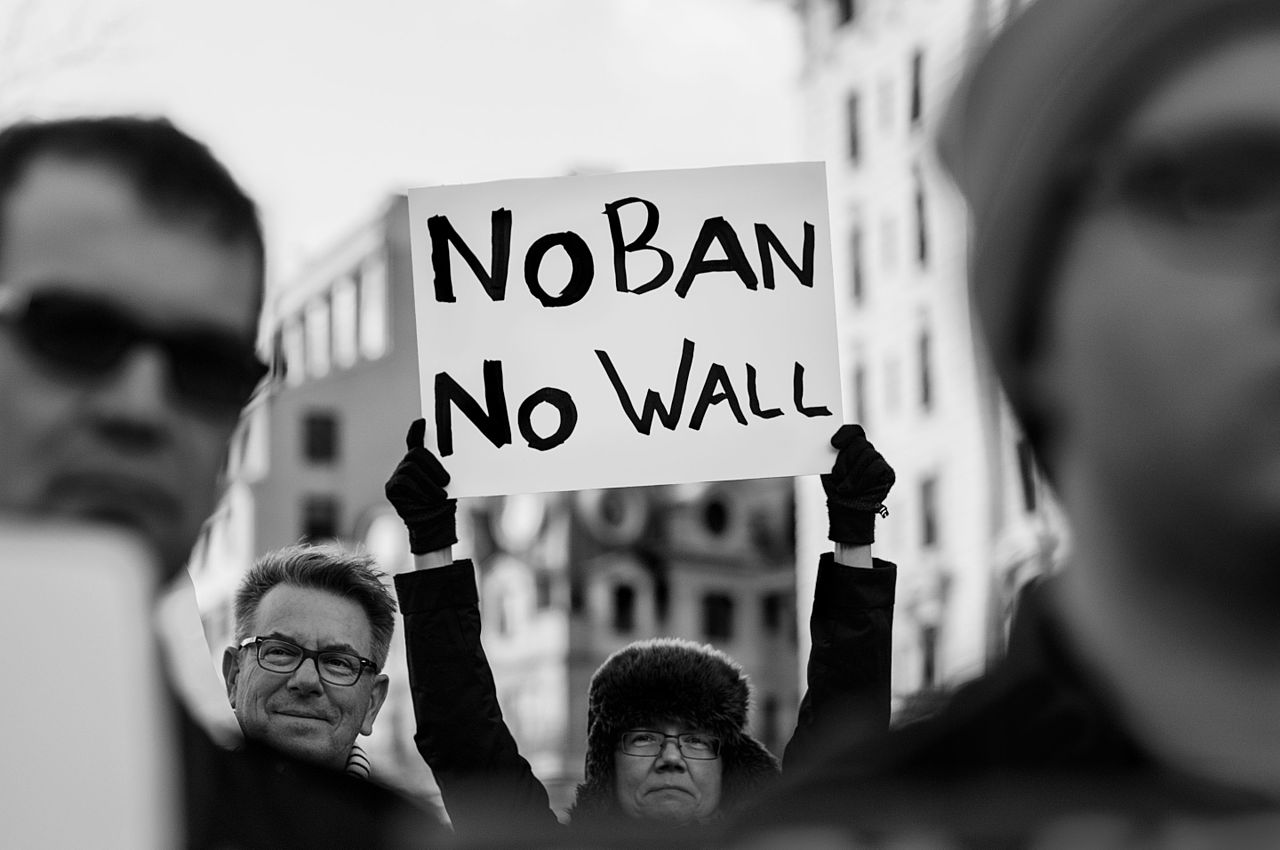On January 27, President Donald Trump signed an executive order prohibiting travelers from seven Muslim-majority countries from entering the U.S following through with his promise of banning Muslims from entering the country to make America safe.
After protests swept across the nation, federal judges blocked the executive order and as of yesterday, the order was revised with very little change. Trump’s executive order remains in force for six countries, even though it is illegal under international human rights law. Therefore, people’s lives will continue to be affected in America and abroad.
There is still a lot of confusion surrounding the travel ban. Through the countless experiences of individuals who have attempted to cross the American border, it seems that even border officials are unsure about the process. Many individuals, including me, fear that the confusion around who can and cannot enter the U.S and on what grounds will lead to being rejected at the border. That is one of the reasons I have decided not to attend the United Nations Commission on the Status of Women (UNCSW) in New York City as a Canadian Voices of Women for Peace delegate.
I was born in Iran (one of the countries on Trump’s banned list) and in 1998, when I was seven years old, my family emigrated to Canada. Three years later, we became Canadian citizens and received our Canadian passports. Although I struggled with my bi-cultural identity, I have always thought of myself as a Canadian.
I grew up in Vancouver and it is the only place I know to be home. It wasn’t until the rise of Islamophobia in the last couple of years, and in particular President Trump’s ban, that I really felt that I am not equal to other Canadians. As a Canadian passport holder of Iranian origin fearing or feeling anxious to cross the U.S border means that I am not being treated the same as other Canadians.
The Trump administration has said that those who are Canadian passport holders will not be affected by the ban, but all individuals who were born in the banned countries regardless of their status in Canada are impacted by this ban in some way or another. Many Canadian-Iranian individuals have shared their experiences about how they have been singled out, scrutinized, heavily questioned and even turned away by U.S border officials.
A few weeks ago, one of my own family members was denied entry into the U.S based on not having sufficient need to travel, even though they had frequently traveled to the U.S without any issues prior to the travel ban. Some people have told me not to take this ban seriously, but just a few weeks ago, two men were shot and killed by a man who thought they were Iranian. The reality is that we are living in fear and being targeted because of our place of birth, the color of our skin and our religion.
I have had the privilege of being a Canadian citizen but others including my own family members who were born in Iran do not have the privilege of traveling to conferences or seeking other opportunities for their personal growth and professional responsibilities. Therefore, another reason I have decided not to take the risk of traveling to the U.S is to stand in solidarity with those whose travel freedoms have been revoked. To me, it doesn’t feel right to attend a conference that other people may simply be prohibited from on the basis of their place of birth or their nationality.
Dividing people based on different classification systems creates hate and hate perpetuates more hate. The hatred against Muslims and people of color is not just in America but has spread across Canada as we have recently seen in the Quebec shootings. Exclusion, separation and barriers between people are not making America safer. Muslim Americans and Canadians are living in fear and are being targeted every single day. Does our safety not count?
My parents sacrificed everything they had and fled the oppressive Iranian regime for better opportunities in Canada so that their children can prosper, so that they have rights and freedoms and so that they can finally be equal to other citizens. They did not flee Iran to be treated as second-class citizens.
Ultimately, this ban is impacting hard-working citizens like my parents who are trying to reach their potential, unite with their family members and live a normal life with dignity. I ask the international community to reflect on the impact this ban has on thousands of individuals and their families and to speak up and take action on one of the most pressing social justice issues of our time.
Like this article? Please chip in to keep stories like these coming.
Image: Wikimedia Commons




